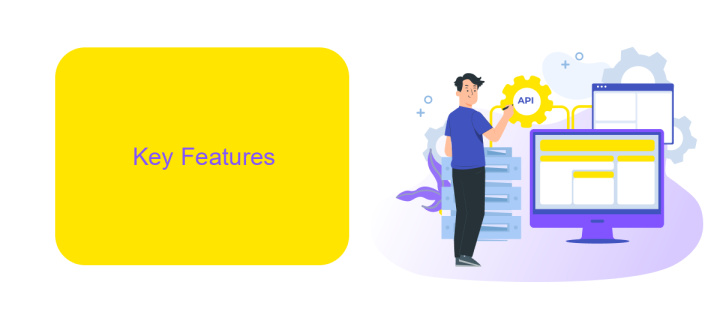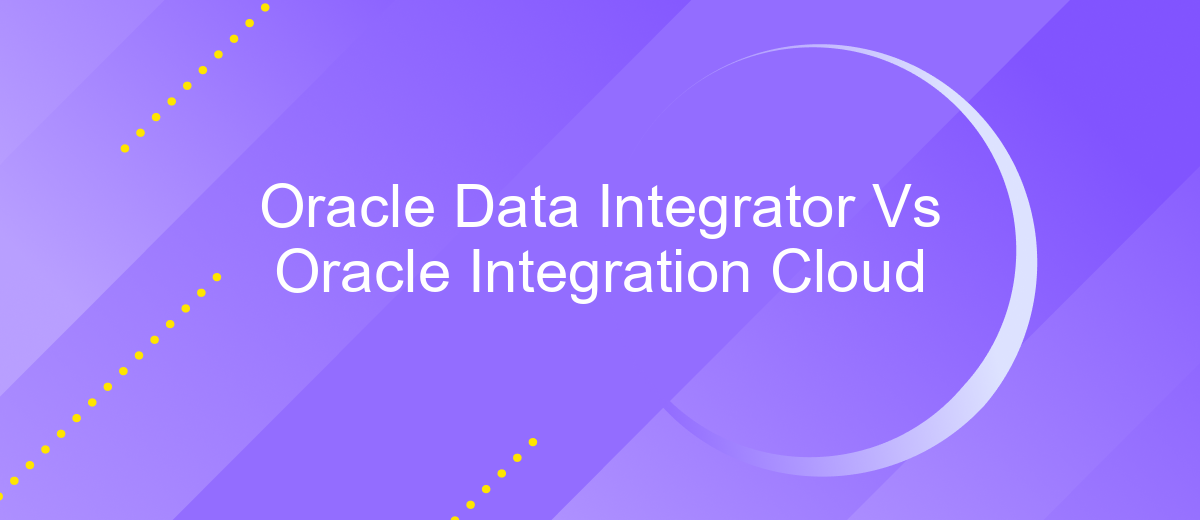Oracle Data Integrator Vs Oracle Integration Cloud
When it comes to integrating data and applications, Oracle offers two powerful solutions: Oracle Data Integrator (ODI) and Oracle Integration Cloud (OIC). This article aims to compare these two platforms, highlighting their key features, use cases, and benefits. By understanding the differences and strengths of ODI and OIC, businesses can make informed decisions to meet their integration needs effectively.
Introduction
As businesses increasingly rely on diverse applications and data sources, the need for robust integration solutions has never been greater. Oracle offers two powerful tools to address these needs: Oracle Data Integrator (ODI) and Oracle Integration Cloud (OIC). Both platforms provide comprehensive capabilities for data integration, but they serve different purposes and are tailored for specific use cases.
- Oracle Data Integrator (ODI): Primarily focuses on high-performance data movement and transformation, ideal for ETL processes.
- Oracle Integration Cloud (OIC): A versatile platform for application integration, API management, and process automation, suitable for connecting cloud and on-premises applications.
Choosing the right tool depends on your organization's specific needs and integration requirements. While ODI excels in handling complex data workflows, OIC offers a more flexible and scalable solution for real-time application integration. Additionally, services like ApiX-Drive can further streamline the integration setup, making it easier to connect various systems and automate workflows without extensive coding.
Key Features

Oracle Data Integrator (ODI) offers robust data integration capabilities, focusing on high-performance data movement and transformation. It provides comprehensive support for various data sources, ensuring seamless data flow across heterogeneous environments. ODI's powerful Extract, Load, and Transform (ELT) architecture allows for efficient data processing, minimizing the overhead on source and target systems. With its advanced error handling and logging features, ODI ensures data integrity and reliability throughout the integration process.
On the other hand, Oracle Integration Cloud (OIC) excels in providing a unified platform for integrating applications and services across cloud and on-premises environments. OIC offers pre-built adapters for popular enterprise applications and a visual designer for creating integration flows with minimal coding. Additionally, it supports real-time data synchronization and API management, enabling organizations to streamline their integration processes. For those looking to simplify their integration setup, services like ApiX-Drive can be instrumental, offering easy-to-use tools for connecting various applications without extensive technical expertise.
Benefits

When comparing Oracle Data Integrator (ODI) and Oracle Integration Cloud (OIC), it’s essential to recognize the distinct advantages each platform offers. Both solutions are designed to streamline data integration processes, yet they cater to different needs and use cases.
- Comprehensive Integration: ODI excels in offering robust ETL (Extract, Transform, Load) capabilities, making it ideal for complex data transformations and integrations.
- Cloud-Native Flexibility: OIC provides a cloud-native environment, offering scalability and flexibility for integrating various cloud and on-premises applications seamlessly.
- User-Friendly Interface: OIC features an intuitive drag-and-drop interface, simplifying the integration process for users without extensive technical expertise.
- Real-Time Data Processing: ODI supports real-time data integration, ensuring that businesses can make timely decisions based on the most current data available.
- Pre-Built Connectors: OIC comes with a wide range of pre-built connectors for popular applications, reducing the time and effort required to establish integrations.
For businesses seeking a versatile and efficient integration solution, Oracle Integration Cloud stands out with its user-friendly interface and extensive connector library. Meanwhile, Oracle Data Integrator is a powerhouse for handling complex data transformations. Additionally, services like ApiX-Drive can further enhance integration capabilities by providing easy-to-use tools for automating data flows between various applications.
Limitations

When comparing Oracle Data Integrator (ODI) and Oracle Integration Cloud (OIC), it is essential to understand their limitations to make an informed decision. Both tools offer robust integration capabilities, but they come with their own set of constraints.
ODI is known for its powerful data integration features, but it can be complex to set up and manage. Users often require extensive training and expertise to fully leverage its capabilities. Additionally, ODI's on-premises nature may not suit organizations looking for a cloud-native solution.
- ODI requires significant initial setup and ongoing maintenance.
- OIC, while easier to use, may not offer the same depth of data transformation capabilities as ODI.
- Both tools can be costly, especially for small to medium-sized enterprises.
- Integrating third-party services may require additional connectors or custom development.
For organizations seeking a more straightforward integration solution, services like ApiX-Drive can be beneficial. ApiX-Drive offers a user-friendly interface and supports various integrations without the need for extensive technical expertise. It can complement both ODI and OIC by simplifying the integration process and reducing the overall complexity.
Conclusion
In conclusion, both Oracle Data Integrator (ODI) and Oracle Integration Cloud (OIC) offer robust solutions for data integration and process automation. ODI excels in handling complex data transformations and large-scale data movement, making it ideal for enterprises with substantial data management needs. On the other hand, OIC provides a more versatile platform for integrating various cloud and on-premises applications, streamlining business processes, and enhancing agility through its user-friendly interface and pre-built adapters.
Choosing between ODI and OIC ultimately depends on your specific business requirements and IT infrastructure. For organizations seeking a comprehensive, code-free integration solution that can easily connect a multitude of applications and services, OIC is a compelling choice. Additionally, tools like ApiX-Drive can further simplify the integration process by offering seamless connectivity and automation capabilities. Regardless of your choice, leveraging the right integration tool can significantly enhance operational efficiency and drive business growth.


FAQ
What is the primary difference between Oracle Data Integrator (ODI) and Oracle Integration Cloud (OIC)?
Can Oracle Integration Cloud (OIC) handle real-time data integration?
Which tool is better suited for complex data transformations, ODI or OIC?
Can I use third-party services to automate and configure integrations with ODI and OIC?
Is there a learning curve associated with using Oracle Data Integrator compared to Oracle Integration Cloud?
Time is the most valuable resource in today's business realities. By eliminating the routine from work processes, you will get more opportunities to implement the most daring plans and ideas. Choose – you can continue to waste time, money and nerves on inefficient solutions, or you can use ApiX-Drive, automating work processes and achieving results with minimal investment of money, effort and human resources.

